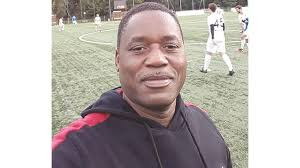
“If you had seen my school reports, you would see why I wanted to be a footballer!” Those are the words of not just any old soccer player, though they could so easily be so, but of one special player and manager who asks people just to “call me Ken”.
Those are the words of none other than Sir Kenny Dalglish, an extraordinary footballer for Celtic and Liverpool, not to mention Scotland, who later went on to become an equally successful player manager before ultimately succeeding greatly as a manager.
In the light of the dilemma we considered in a previous article about why great players do not necessarily become good, let alone great, coaches, it may be interesting and beneficial to determine why he was so successful in all these areas.
We can listen to him speak (though we might need an interpreter to understand his Scottish accent!) on many different YouTube clips, whether they are biographies of him, interviews with him or excerpts from Lifetime Achievement Awards that he was given, including such awards given by the BBC Sports Personality of the Year, the Daily Mirror’s Pride of Sport, the Sunday Mail or an old television programme of “This Is Your Life”.
Again and again, Sir Kenny mentions that as he was not gifted academically (he did undertake some training as a joiner), he was fortunate to have skills in playing soccer but what he always said right from the start, speaking of himself and fellow players, was that “all we did was enjoy ourselves” – there lies the first fundamental for any player and coach yet too often coaches give the impression that they are not enjoying themselves, that it is a battle, a stress, a job.
Sport, even competitive sport, is to be enjoyed first and foremost – so speaks one of the greatest players and coaches.
Then he also often would say, linked with the above comment, that “all we did was try to make people happy” – in his case, that was a bit of an understatement as anyone who watched his pure class unfailingly enjoyed the experience. He recognised that winning trophies may have helped some people to be happy but in school context it should relate more to the fact that learning has ensued.
He is quoted as saying profoundly that “it’s a simple game made difficult by people who don’t understand”. School coaches make school sport difficult because they do not understand children, in particular, nor what sport in school is about.
- All set for Bosso, DeMbare blockbuster
- Bosso reclaim Uhuru Cup
- Rambanapasi sets up thriving building supplies business
- Rambanapasi sets up thriving building supplies business
Keep Reading
The way many coaches coach sport at school takes away the enjoyment for the pupils and actually prevents them from wanting to go on and achieve the successes that someone like Sir Kenny has enjoyed.
Sport must be made simple for children.
Sir Kenny also made a point that he recognised the value and importance of team sport, likening the family to a team (do school sports coaches ever reference that in their sessions with children?), and highlighted the fact that he would have struggled in an individual sport.
He emphasised the importance of the team, even when he was clearly the star player / manager of that team.
We can also listen to his peers and fellow competitors define why they saw him as so special. In simple terms, it was his qualities as a human being that made him stand head and shoulders above others.
Great players with whom and against whom he played recognised his integrity, decency, honesty, dignity, humility, determination. It is interesting that when the Lifetime Achievement Awards were presented to him, the presenter stated “this award could not go to a better person” – note, a better person, not a better player. As manager when the horrendous Hillsborough tragedy occurred (97 fans were crushed to death during a match in 1989), he personally attended almost all the funerals of those Liverpool supporters, respecting their humanity and understanding their loss.
He cared not just for his players but also for the fans. Such are essential qualities for a school coach.
It is interesting that Tommy Docherty, the man who had given Dalglish his first (of over 100) Scottish cap, gave up managing his soccer team in a match in Australia to fly back to the UK for three hours before getting back on a plane to fly back (a round trip of 60 hours covering 25,000 miles), simply to pay his respect to Dalglish, the player.
Dalglish would have done the same. He was a great man before he was a great manager. There lies the secret for all school coaches and players.
We do not need to look at anyone’s school report to know that – and all we will do is enjoy ourselves










